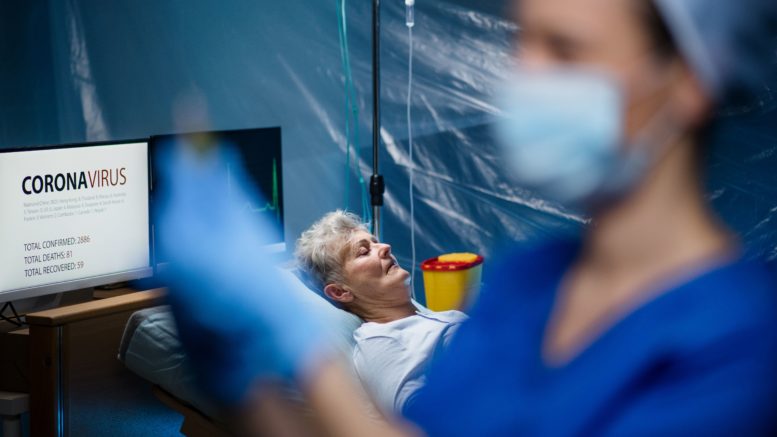Coronavirus disease 2019 (COVID‐19) is a rapidly emerging disease that has been classified a pandemic by the World Health Organization (WHO). To support WHO with their recommendations on quarantine, Nussbaumer‐Streit, et al. (2020) conducted a rapid review on the effectiveness of quarantine during severe coronavirus outbreaks.
The researchers conducted a rapid review to assess the effects of quarantine (alone or in combination with other measures) of individuals who had contact with confirmed cases of COVID‐19, who traveled from countries with a declared outbreak, or who live in regions with high transmission of the disease. The researchers included 29 studies; 10 modeling studies on COVID‐19, four observational studies and 15 modeling studies on SARS and MERS.
According to Nussbaumer‐Streit, et al. (2020), "Modeling studies consistently reported a benefit of the simulated quarantine measures, for example, quarantine of people exposed to confirmed or suspected cases averted 44% to 81% incident cases and 31% to 63% of deaths compared to no measures based on different scenarios (incident cases: 4 modeling studies on COVID‐19, SARS; mortality: 2 modeling studies on COVID‐19, SARS, low‐certainty evidence). Very low‐certainty evidence suggests that the earlier quarantine measures are implemented, the greater the cost savings (2 modeling studies on SARS). Very low‐certainty evidence indicated that the effect of quarantine of travelers from a country with a declared outbreak on reducing incidence and deaths was small (2 modeling studies on SARS). When the models combined quarantine with other prevention and control measures, including school closures, travel restrictions and social distancing, the models demonstrated a larger effect on the reduction of new cases, transmissions and deaths than individual measures alone (incident cases: 4 modelling studies on COVID‐19; onward transmission: 2 modeling studies on COVID‐19; mortality: 2 modeling studies on COVID‐19; low‐certainty evidence). Studies on SARS and MERS were consistent with findings from the studies on COVID‐19."
The researchers concluded that the current evidence for COVID‐19 is limited to modeling studies that make parameter assumptions based on the current, fragmented knowledge. Findings consistently indicate that quarantine is important in reducing incidence and mortality during the COVID‐19 pandemic. Early implementation of quarantine and combining quarantine with other public health measures is important to ensure effectiveness. In order to maintain the best possible balance of measures, decision makers must constantly monitor the outbreak situation and the impact of the measures implemented. Testing in representative samples in different settings could help assess the true prevalence of infection, and would reduce uncertainty of modelling assumptions.
This review was commissioned by WHO and supported by Danube‐University‐Krems. It includes evidence published up to March 12, 2020.
Reference: Nussbaumer‐Streit B, et al. Quarantine alone or in combination with other public health measures to control COVID‐19: a rapid review/Cochrane Systematic Review. April 8, 2020. https://doi.org/10.1002/14651858.CD013574
Source: Cochrane/Wiley

Be the first to comment on "Researchers Conduct Review of Quarantine Alone or in Combination With Other Public Health Measures to Control COVID‐19"